Zhemin Zhuang
MSW-Transformer: Multi-Scale Shifted Windows Transformer Networks for 12-Lead ECG Classification
Jun 21, 2023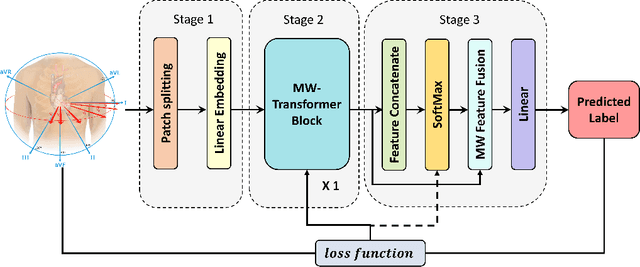
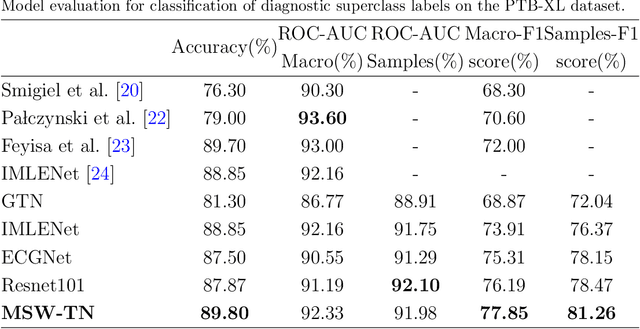
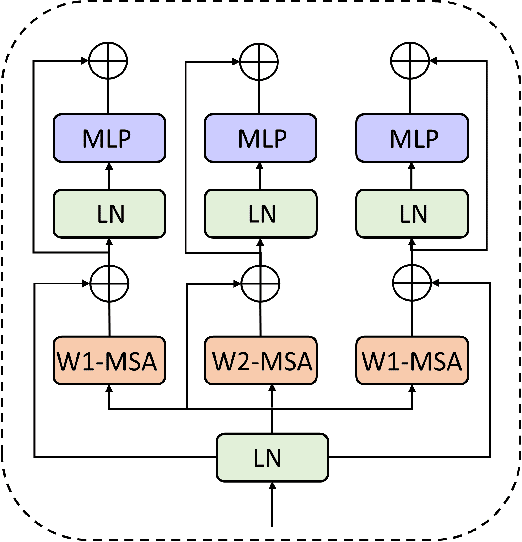
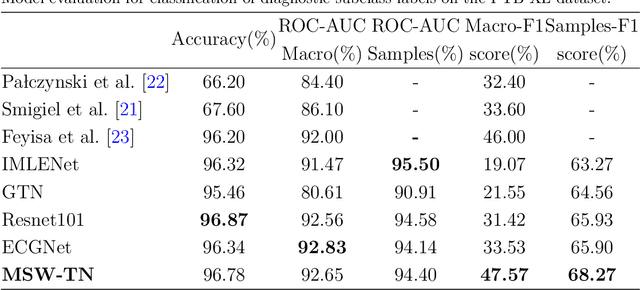
Abstract:Automatic classification of electrocardiogram (ECG) signals plays a crucial role in the early prevention and diagnosis of cardiovascular diseases. While ECG signals can be used for the diagnosis of various diseases, their pathological characteristics exhibit minimal variations, posing a challenge to automatic classification models. Existing methods primarily utilize convolutional neural networks to extract ECG signal features for classification, which may not fully capture the pathological feature differences of different diseases. Transformer networks have advantages in feature extraction for sequence data, but the complete network is complex and relies on large-scale datasets. To address these challenges, we propose a single-layer Transformer network called Multi-Scale Shifted Windows Transformer Networks (MSW-Transformer), which uses a multi-window sliding attention mechanism at different scales to capture features in different dimensions. The self-attention is restricted to non-overlapping local windows via shifted windows, and different window scales have different receptive fields. A learnable feature fusion method is then proposed to integrate features from different windows to further enhance model performance. Furthermore, we visualize the attention mechanism of the multi-window shifted mechanism to achieve better clinical interpretation in the ECG classification task. The proposed model achieves state-of-the-art performance on five classification tasks of the PTBXL-2020 12-lead ECG dataset, which includes 5 diagnostic superclasses, 23 diagnostic subclasses, 12 rhythm classes, 17 morphology classes, and 44 diagnosis classes, with average macro-F1 scores of 77.85%, 47.57%, 66.13%, 34.60%, and 34.29%, and average sample-F1 scores of 81.26%, 68.27%, 91.32%, 50.07%, and 63.19%, respectively.
SearchMorph:Multi-scale Correlation Iterative Network for Deformable Registration
Jul 04, 2022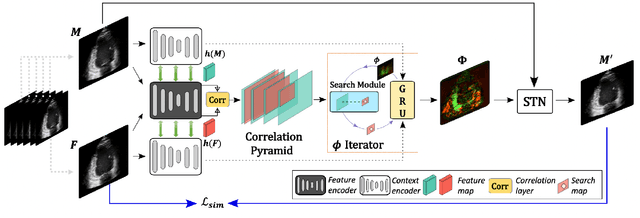
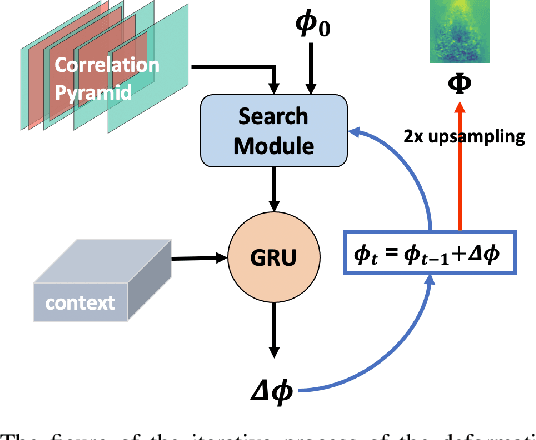
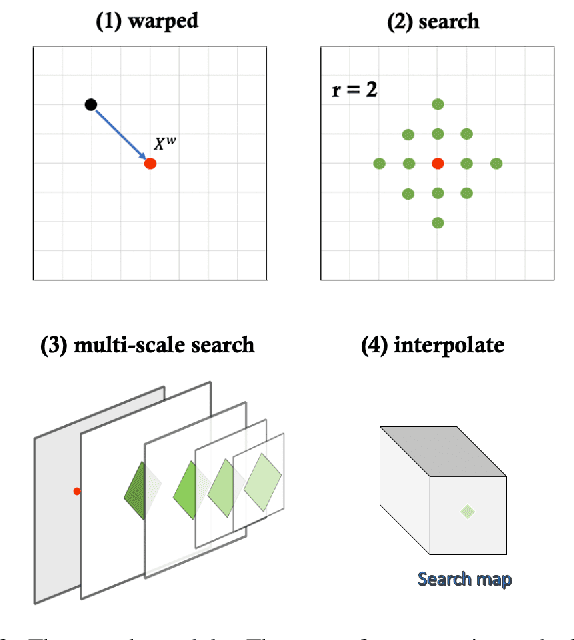
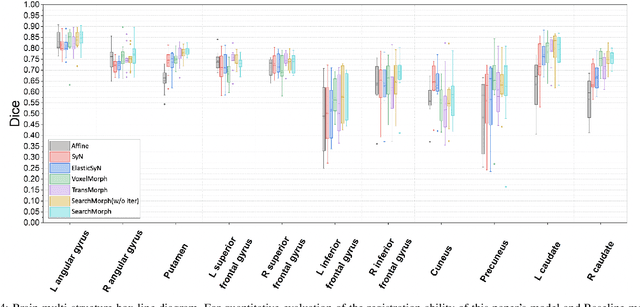
Abstract:Deformable image registration provides dynamic information about the image and is essential in medical image analysis. However, due to the different characteristics of single-temporal brain MR images and multi-temporal echocardiograms, it is difficult to accurately register them using the same algorithm or model. We propose an unsupervised multi-scale correlation iterative registration network (SearchMorph), and the model has three highlights. (1)We introduced cost volumes to strengthen feature correlations and constructed correlation pyramids to complement multi-scale correlation information. (2) We designed the search module to search for the registration of features in multi-scale pyramids. (3) We use the GRU module for iterative refinement of the deformation field. The proposed network in this paper shows leadership in common single-temporal registration tasks and solves multi-temporal motion estimation tasks. The experimental results show that our proposed method achieves higher registration accuracy and a lower folding point ratio than the state-of-the-art methods.
 Add to Chrome
Add to Chrome Add to Firefox
Add to Firefox Add to Edge
Add to Edge